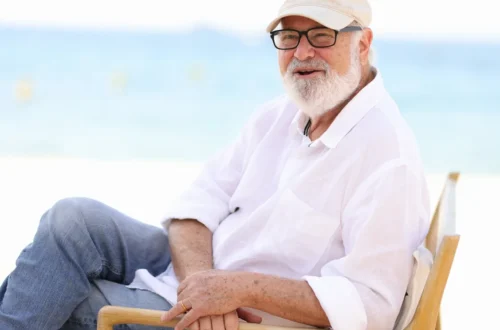Victoria Beckham is breaking her silence. In a new three-part docuseries on Netflix, the former Spice Girl and now acclaimed fashion designer reveals for the first time how she wrestled with an eating disorder across much of her adult life amid intense scrutiny over her body. The series, which weaves present-day footage with archival material and interviews, frames her struggle not as an isolated crisis but as part of a lifelong negotiation with fame, image, and self-worth.
Beckham describes how the pressure to appear perfect intensified after the birth of her first son, Brooklyn, in 1999. A few months later, she was asked to step on a scale on national television to prove she was “back to normal,” a moment she says haunted her emotionally. She recalls feeling robbed of privacy and dignity, pressured by tabloids and media voices that relentlessly judged her weight and appearance. To cope, she says she resorted to controlling her diet and exercise in increasingly unhealthy ways, hiding the reality even from those closest to her, including her parents.
She admits she grew skilled at concealing her disorder, making excuses when pressed and internalizing shame whenever her public image wavered. In the series, she recounts the ways she silenced her own voice, dismissing discomfort as vanity or weakness. At times she felt detached from what she saw in the mirror, unable to trust her own perception of herself. The docuseries traces not only her internal battles, but the emotional fallout: strained relationships, alternating phases of insecurity and defiance, and the slow process of accepting her vulnerabilities publicly.
The show also intersects with her professional world. As she prepared for her Paris Fashion Week 2025 show, she reflects on how the demands of fashion — a world always measuring, comparing, and dissecting — layered onto her personal anxieties. Inside scenes reveal late nights, backstage stress, and the tension of balancing artistry with reputation. Beckham’s husband, David, appears on screen, offering support and acknowledging how relentless criticism shaped her interior life. He describes watching a woman he loves become increasingly guarded, protective, and silent.
Her story in the docuseries is not focused on scandal or melodrama. There is no grand confessional, no tearful breakdowns as spectacle. Instead, it is a quiet unraveling: a woman examining how the machinery of celebrity, media, and fashion interact with personal fragility. Beckham resists the notion that her past self was weaker, arguing instead that she was simply human — vulnerable in a system that rewards only perfection.
Reactions to the docuseries have been immediate. Fans and commentators praise Beckham’s courage in revealing an issue that many women face silently, particularly in industries anchored in appearance. Mental health advocates welcome the depiction as a tool for empathy, illustrating that the glamour of celebrity cannot shield one from inner pain. Some critics wonder whether the timing is strategic, tied to fashion cycles or branding, but the tone of the series leans toward sincerity and introspection rather than promotion.
For Beckham, this docuseries arrives at a moment of reinvention. She has long sought legitimacy in fashion — a field often skeptical of celebrity designers — and has quietly built a brand known for elegant minimalism and aspirational luxury. The decision to publicly address her eating disorder signals another step: from controlling image to owning narrative.
As audiences watch her wrestle with shame, resilience, and recovery, they see not just a public figure but a person forging peace with her past. Whether this marks a new era of vulnerability in celebrity or becomes a touchstone for other women watching, it is clear: Victoria Beckham is no longer hiding. She is telling.




